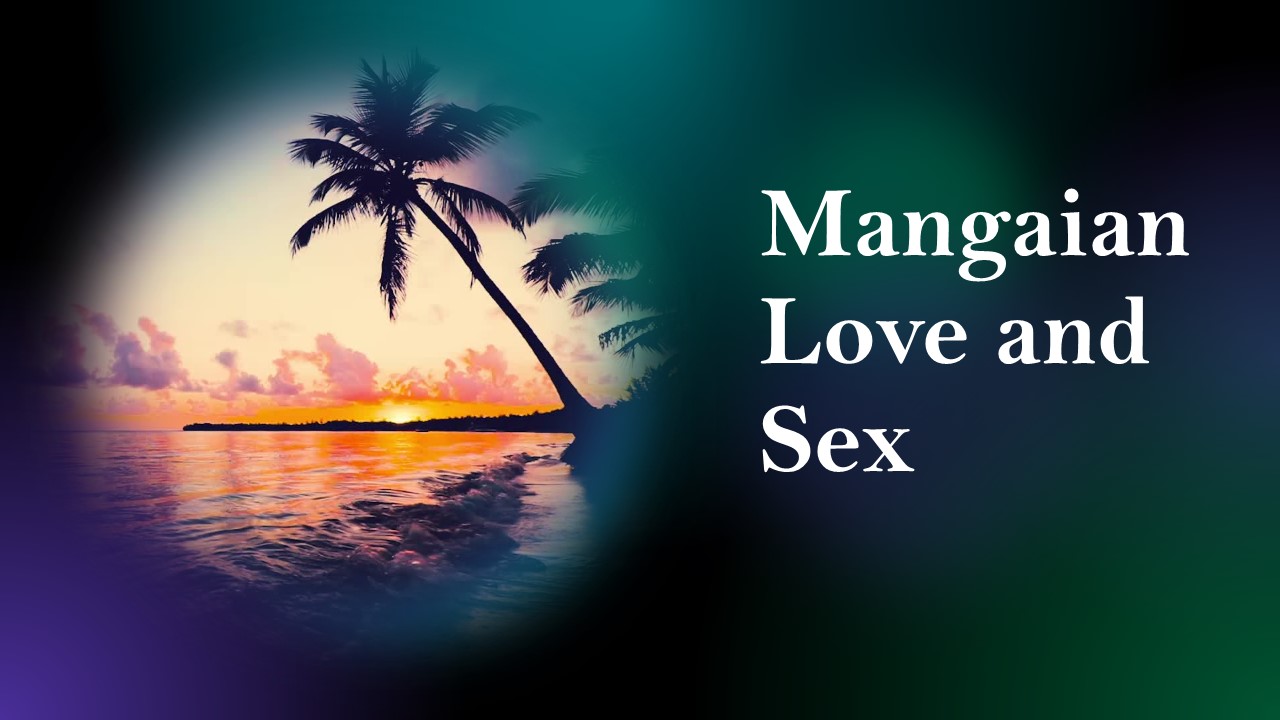As noted elsewhere, Polynesian sex and love are more complex emotional phenomena than people in Western culture previously thought. Mangaian love presents an example of this.
Early anthropological research distorted the nature of Polynesian heterosexual relationships. They portrayed men and women as sexually obsessed and permissive in their sexual attitudes and behaviors. The stereotypical western picture, which downplayed the affectionate, emotional, and romantic feelings of the Pacific islanders, was quite inadequate.
Polynesian love in Mangaian culture was not only sexual but also romantic.
Anthropological studies in the later decades of the 20th century revealed a psychologically more complex notion of Polynesian love. Anthropologists found a clear indication that romantic features of emotional experience are evident, for example, in the case of Mangaian culture (e.g., Harris, 1995; see for review, Karandashev, 2017).
The Three Main Attributes that Made Mangaia Love “Romantic”
In another article, I explained the three key things that made Polynesian love in Mangaia romantic. These were
- (1) intrusive thinking about the partner,
- (2) a romantic perception of the beloved as an exceptional person, and
- (3) a romantic idealization of the partner and the relationship.
Here are the other three attributes that made Polynesian Mangaian love “romantic.”
4. Reordering of Motivational Hierarchies in Mangaian Love
Romantic love transforms the motivational priorities guiding the lover’s perception, thinking, and actions. The lovers make choices and decisions based on a new set of values in which everything related to the beloved and the relationship takes precedence over almost everything else. Romantic love overshadows many other things that looked valuable before (Karandashev, 2017, 2019).
According to the interviews with many Mangaians, young men and women often felt a controversy between their own aspirations for a free choice of mate, based on their romantic ideals, on the one hand, and honor and respect for their parents, on the other hand. The young men and women often chose to pursue their love relationships despite the risk of losing their valuable family connections and support (Harris, 1995, p. 119).
In the case where parents oppose their own mate choices, young women and men frequently describe significant emotional distress. The conflicts between their romantic feelings on the one hand and their long-standing status in their kinship, family, and lineage on the other tore them apart.
The occasional cases of fatal consequences due to forced separation from the loved one and even the cases of suicide explain the romantic idea of placing love above life itself in Mangaian love. These instances represent the ultimate reordering of motivational hierarchies.
5. Emotional Dependency in Mangaian Love
If romantic love is reciprocal and mutual, its passionate fascination and admiration evolve into romantic closeness and emotional dependency. Lovers want to know each other better and deeper, to be physically and emotionally closer. They want more and more physical and psychological intimacy. The emotional states of lovers are often closely associated, reciprocated, and synchronized.
In the Mangaian language, an intense emotional response to separation from a beloved is called atingakau, meaning broken heart. The common symptoms of atingakau are a loss of appetite, an inability to sleep, and social isolation. In the case of men, it could be heavy drinking.
Young Mangaian women and men recognize that certain predictable emotional states arise in response to the status of a love relationship. Love can bring both happiness and sadness. Non-reciprocal affection, unrequited love, geographic distance, threats of separation from the beloved, or parental interference could cause their distressed emotions.
6. Care and Concern for the Other in Mangaian Love Relationships
Many western love scholars consider taking care of the loved one, caring about her or him, and expressing concern for the welfare of the beloved among the central features of romantic love (Karandashev, 2017, 2019).
It was also the case for many Mangaians, especially women (Harris, 1995). They believe that being in love means worrying about the well-being and safety of the beloved. Love also means the desire to contribute to their happiness.
For Mangaian women and men, care and concern in romantic love are related to the desire for union and intimacy (Harris, 1995, p. 120–121):
“Caring is not simply an abstract concern for the welfare of the beloved but rather a concern connected to the desire to prevent separation and loss of access. Caring is ultimately defined by how it contributes to maintaining access, increasing intimacy, and fostering reciprocation. Underlying a deeply felt anxiety over the welfare and happiness of a lover is an understanding that the safety and happiness of the beloved are fundamental to maintaining proximity.”
Harris, 1995, p. 120–121
Thus, we can conclude that the field ethnographic study in Mangaia was among the first to discover a basic pattern of feelings characterized by romantic love in Polynesian Mangaian culture (Harris, 1995).
The pattern turned out to be quite like the Western scholarly conceptualization of romantic love (Karandashev, 2017, 2019).
